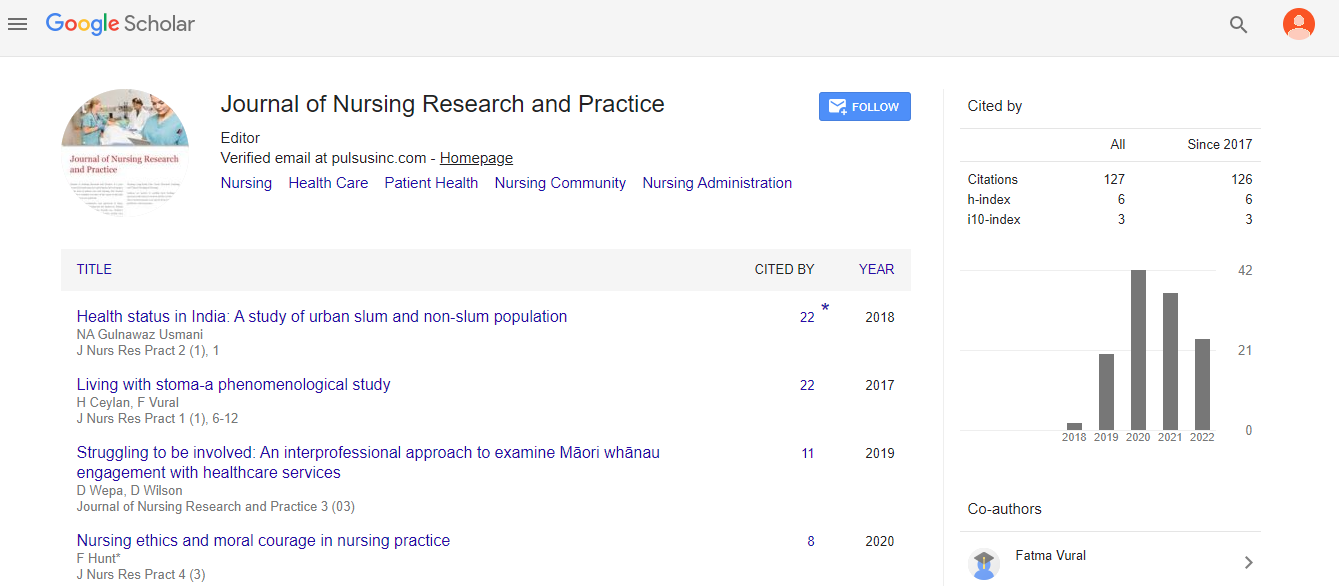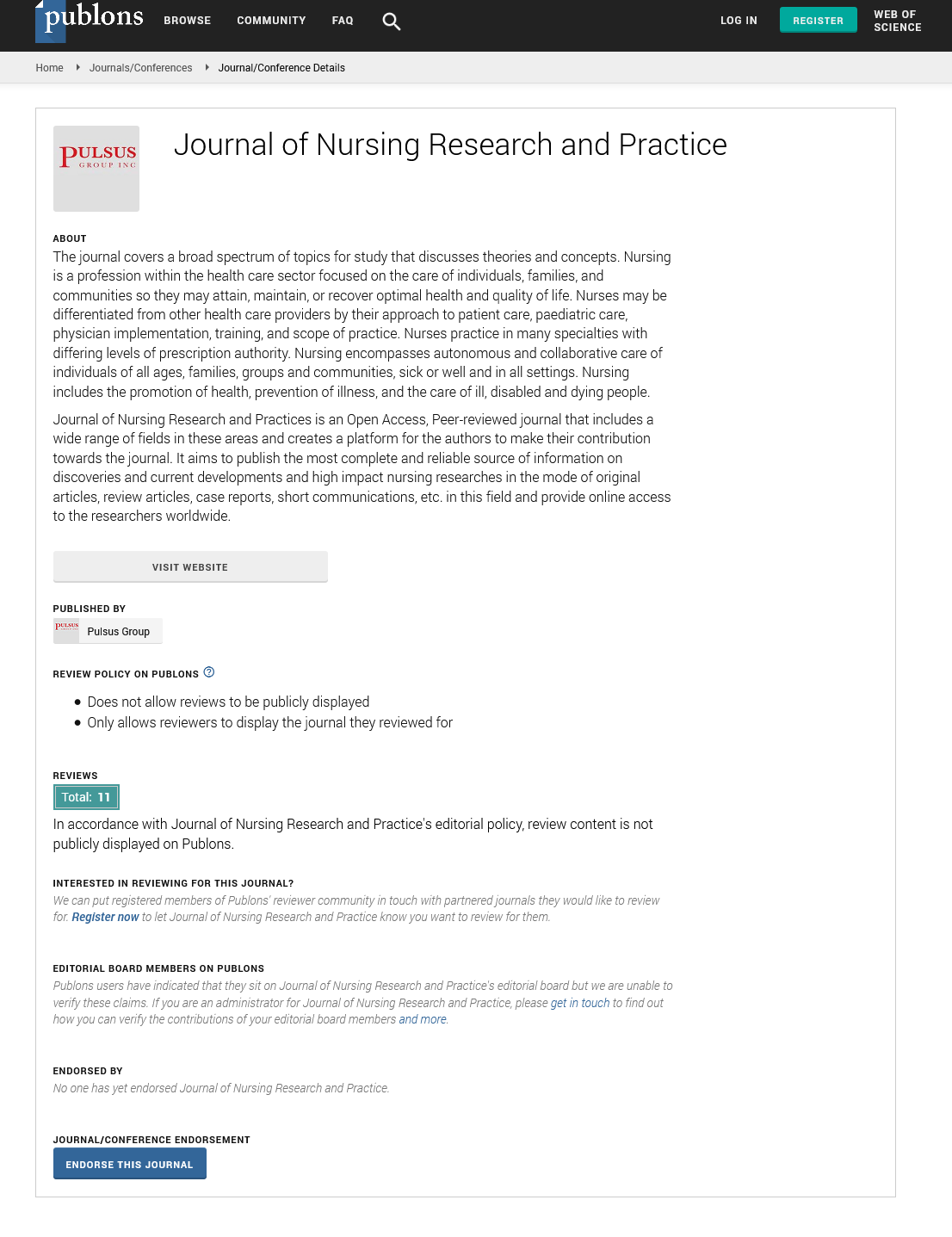
Sign up for email alert when new content gets added: Sign up
Adolescent mothersâÃâ¬Ã⢠knowledge and perceptions regarding the use of contraceptives in the selected health care centres in Vhembe district, South Africa
Joint Event on 45th World Congress on Nursing Care & 8th European Breast Congress
December 11-13, 2017 | Rome, Italy
Lizzy Mangena-Netshikweta, K G Netshisaulu, L Malwichi, S A Mulondo, J L Mafumo and T Masia
University of Venda, South Africa
ScientificTracks Abstracts: J Nurs Res Pract
Abstract :
Background: South Africa like any other developing country, younger women (age 19 years and younger) report unintended pregnancies and the intention to termination of pregnancy. The government emphasise the use of contraceptive services/ and made efforts for all women young and old are available free of charge. Purpose: The purpose of this study was to assess the knowledge and perceptions among adolescent mothers regarding the use of contraceptives in the selected health care centres in Vhembe district, South Africa. Methods: A descriptive quantitative cross-sectional survey attempted to identify reasons why adolescent mothers (aged 19 or younger) failed to use contraceptives soon after the birth of their babies or to seek services of the termination of pregnancy services upon realisation that they skipped a month. Population for the study included all adolescent mothers who visited the sampled healthcare centres in Vhembe district. The accessible convenience sample included adolescent mothers who consulted the sampled healthcare centres in Vhembe district in July to November 2016 who gave concern to complete pretested questionnaires. In pre-testing, ten questionnaires were completed by adolescent mothers who were excluded from the main study. Data was collected using self-administered questionnaires. Analysis: Data was analysed with the Epi-Info program obtained from 690 completed questionnaires. Of the 690 respondents who participated in this study, only 12 (1.7%) earned sufficient money to sustain themselves and their babies. Despite the unfavourable financial circumstance, only 40 (5.8%) had utilised contraceptives prior to conception. Study reported that all the respondents never used emergency contraceptives and could not access termination of pregnancy services. Services are available free of charge, however, respondents never used such services. Conclusion: Findings report that majority of the respondents 578 (83.7%) require more knowledge about contraceptives. Some pleaded that services to open over weekends and in the evenings allowing adolescents to obtain contraceptives.
Biography :
Lizzy Mangena-Netshikweta is Professor of Nursing. She is serving as HOD of the Department of Nursing Science at the University of Venda, South Africa to date. Lizzy, Graduate several masters’ and PhD students as a supervisor and co-authored thesis and dissertations at the University of Venda. She is a graduate of Wits University School of Nursing (Honors) and University of South Africa, Department of Health Studies MA CUR and D Litt et Phil. Lizzy has won several competitive research grants including funding from MRC, NRF. She has more than 46 Peer reviewed publication in accredited Journals National and international. External moderation in several national and two International universities (University of Virginia (USA) and British University of Columbia (Canada), Ghana College of Nursing and several Universities in South Africa





